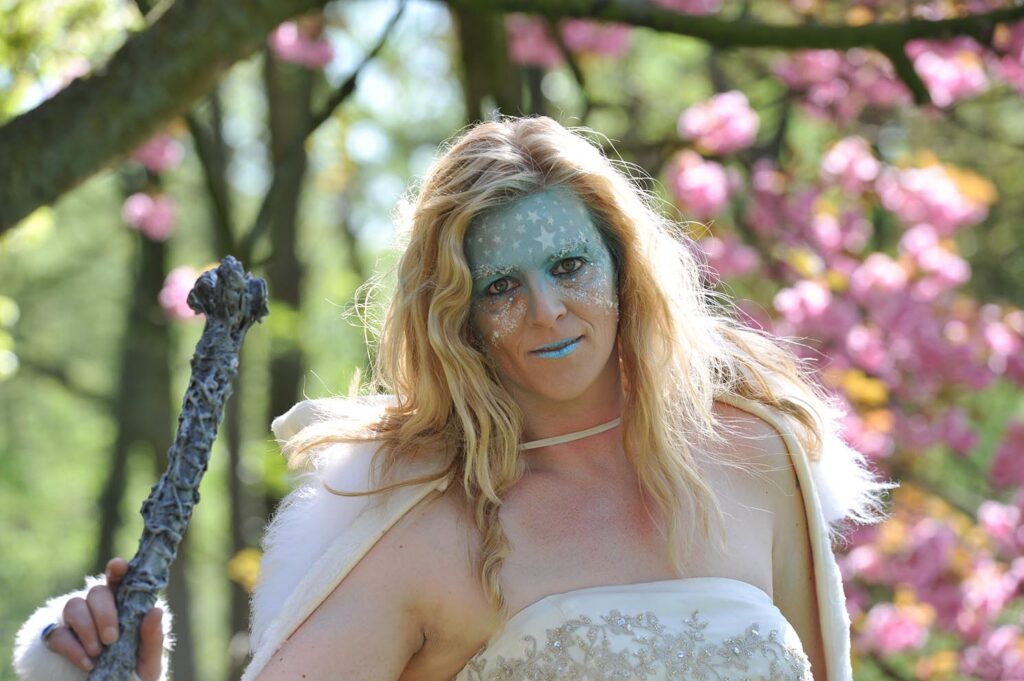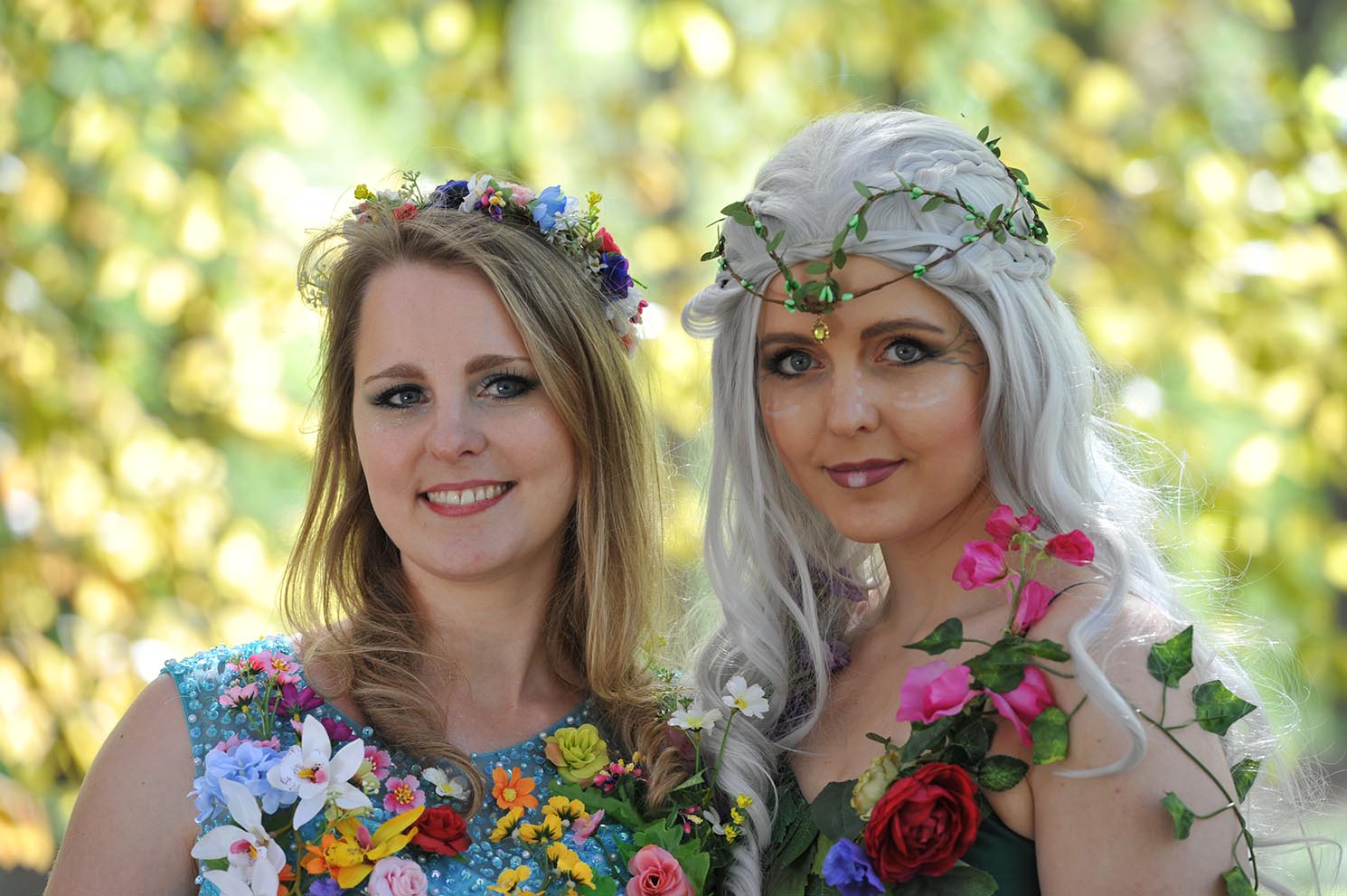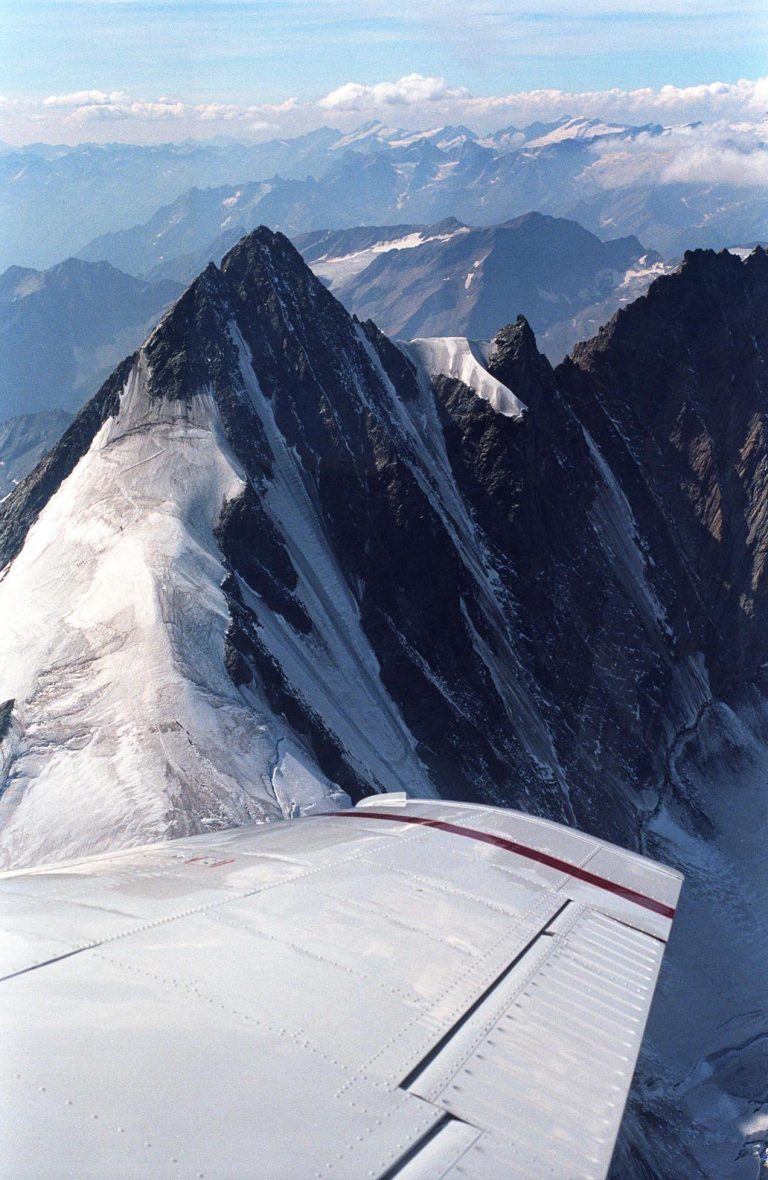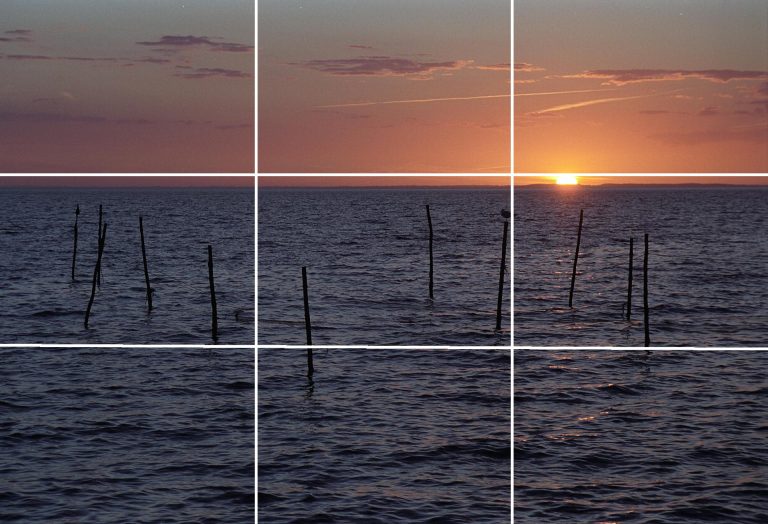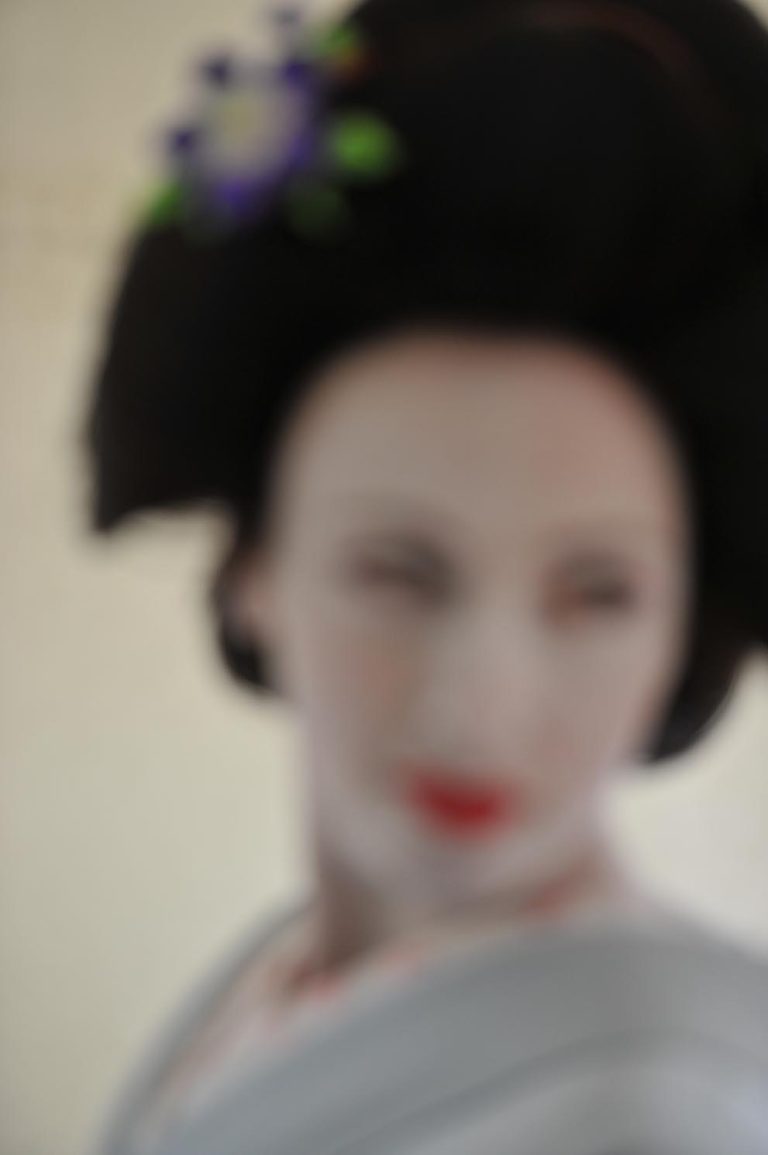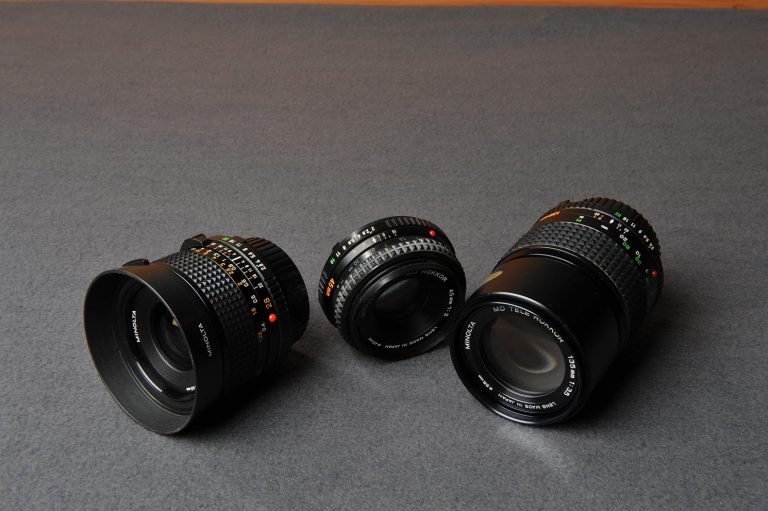Light – Backlight
Sun at Your Back
If you would visit a photo shop to buy your 1st camera as a novice photographer back in the 1980s and 1990s usually you were recommened to always keep “the sun at your back” when taking photographs. A simple rule to prevent you as a novice to experience poor results in backlight situations.
Backlight
A backlight situation occurs when you take photographs against a light source.E.g. when you are looking into the sun. You can check for potential backlight situations by looking at the shadow cast by your subject. If the shadow points somewhat towards the camera it is a backlight situation.
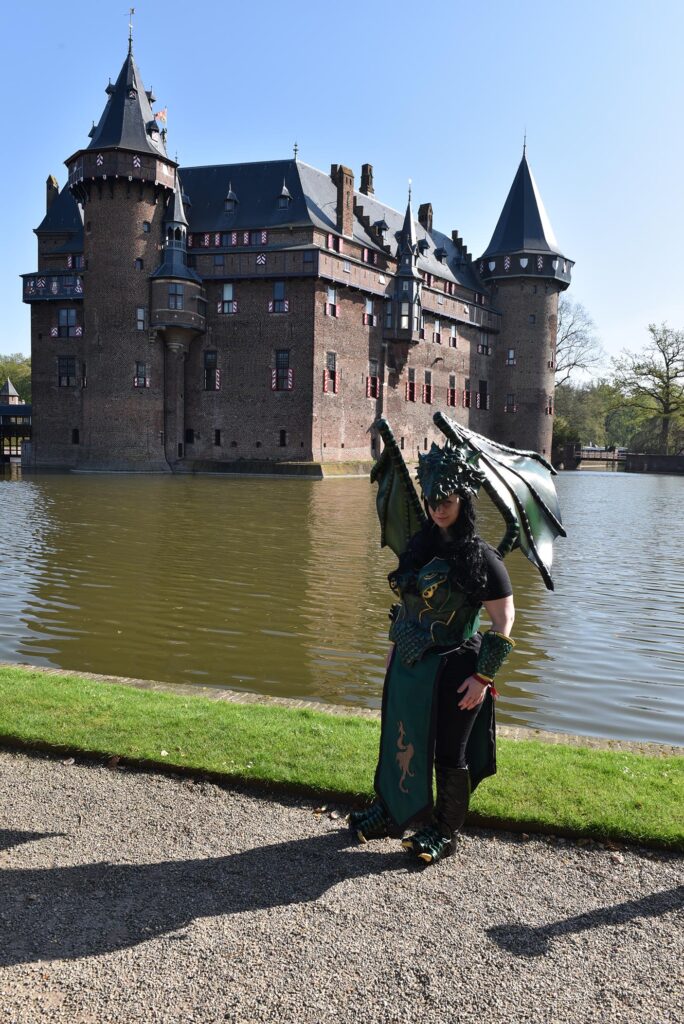
Light measuring systems are looking for an average exposure time that will properly depict both the light and the black parts. If the background elements, e.g. the sky, the castle and the water are much brigther than the the front of the subject, the subject will become too dark. This is exactly the problem in backlight situations.
Mid-day
When the sun is at its highest the largest difference between light and shadow occurs. Light spills down straight from above causing less flatering shadow in the eyesockets and below the nose. It is often recommended to avoid taking photographs during the mid-day period. The contrast is too large and the background will become heavily overexposed when the subject is properly exposed.
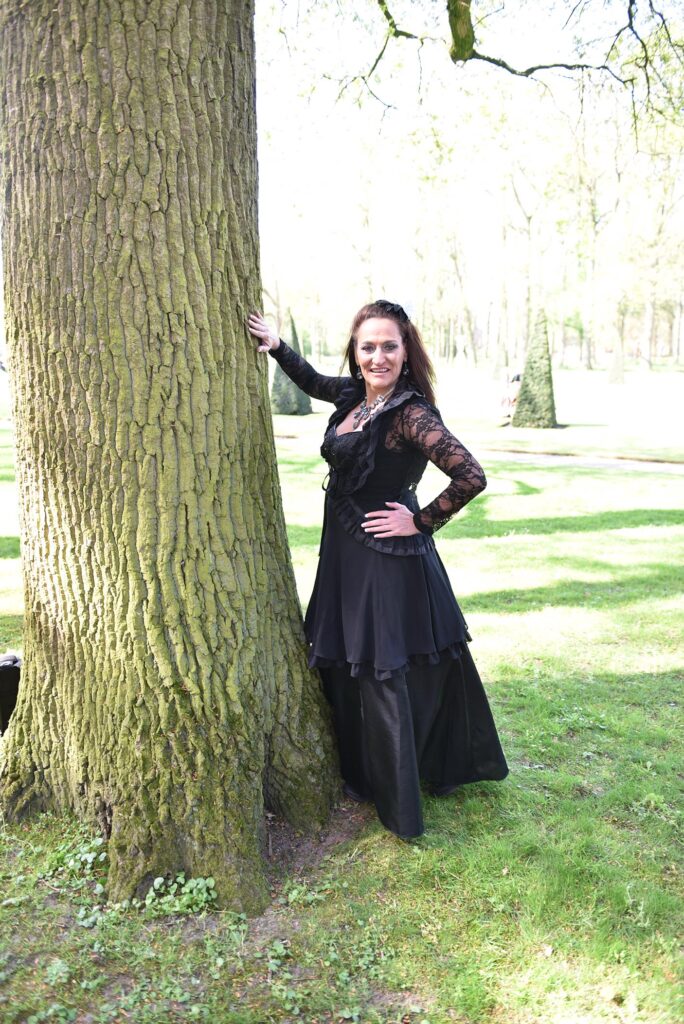
Lens Flare
In backlight situations light is likely to fall directly into the lens and relect and bounce around. This can cause strange effects. A lens hood can mitigate lens flare. But never completely eliminate the effects. This photo was taken with a lens hood, but still has a strange blurry light spot in the lower left corner.
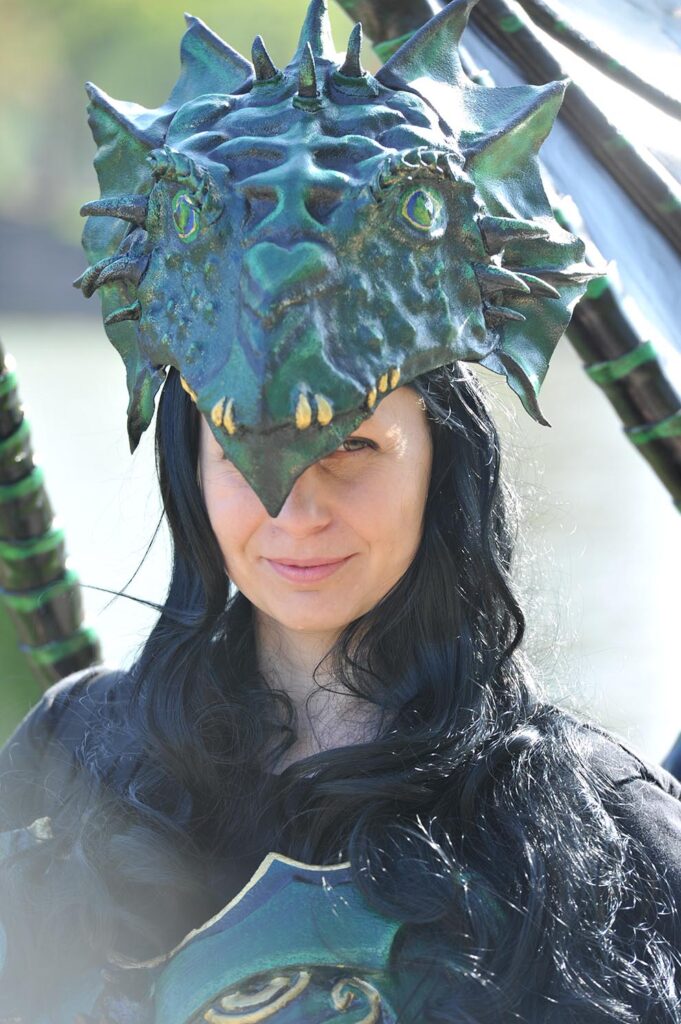
In the shadow on the gras beneath the feet there appears to be a floating light orb. This also is caused by light refecting inside the lens.
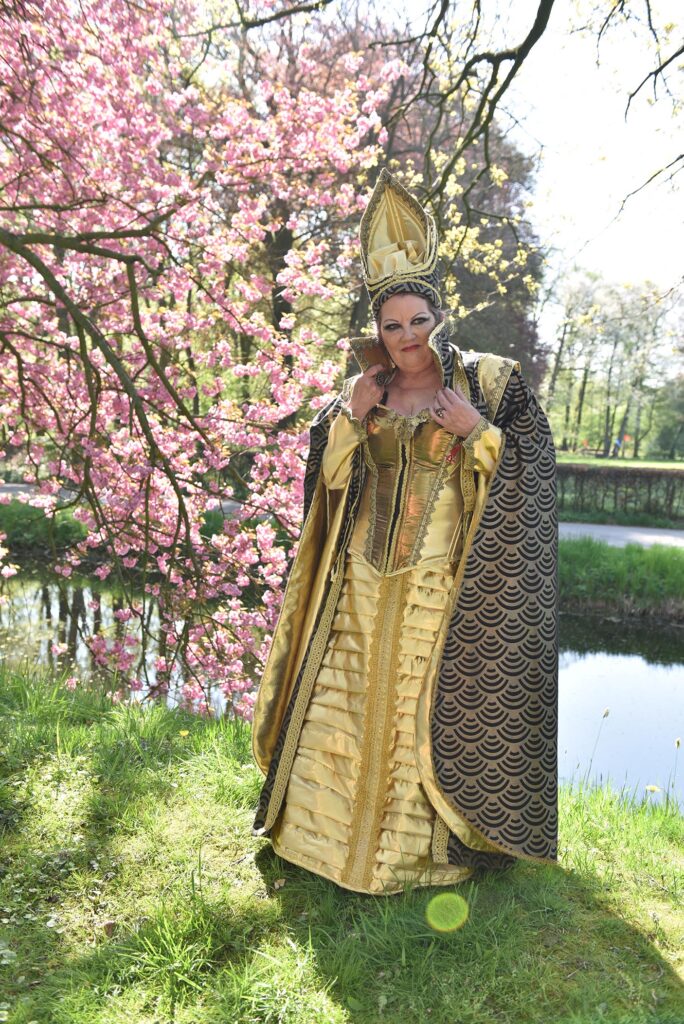
Sometimes the shape of the aperture opening appears repeated serveral times in different sizes on the photograph.
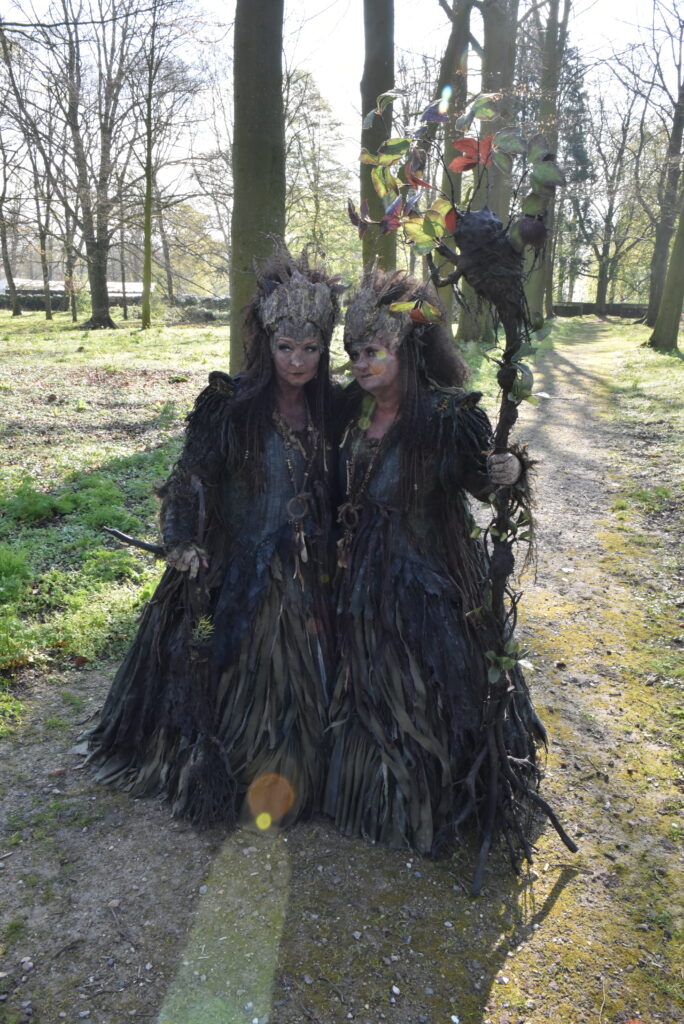
Angela Van Gemert Van Doremalen en Yvonne Van De Kemenade-van Doremalen
Zoom In
A pragmatic solution to avoid the backlight effects is to zoom in on your subject. This causes the subject to become a bigger part of the image. This helps the build-in light meter in the camera to more easily come to the correct exposure time. Still there is a change of some over-exposure in the background.
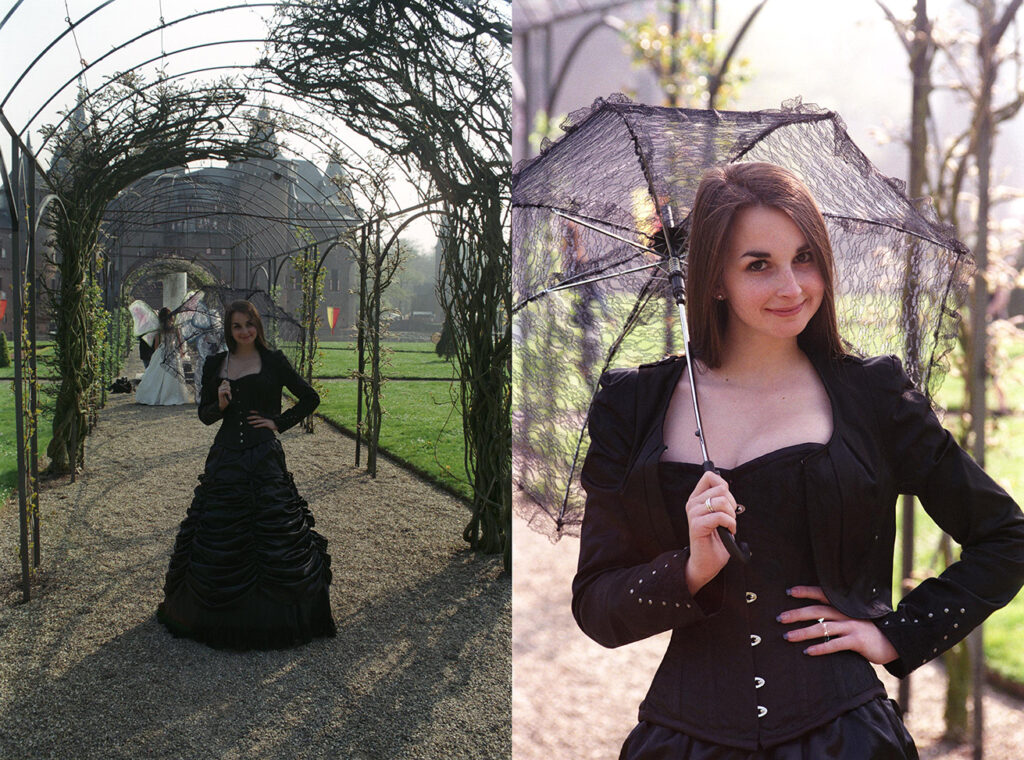
Photo editing
An other pragmatic solutions it to use photo editing software.
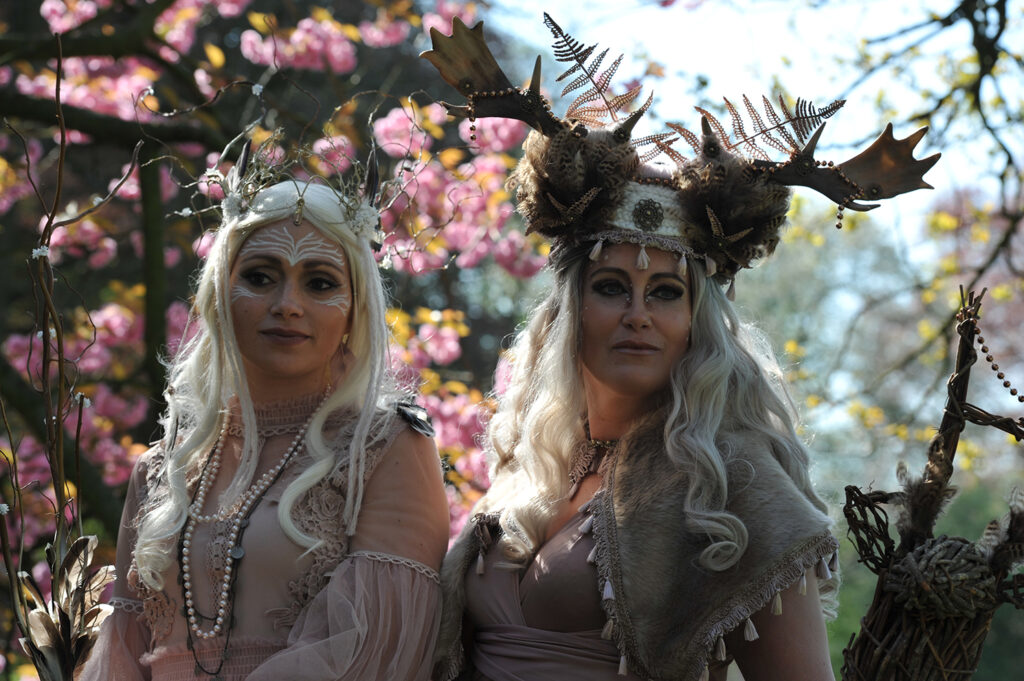
Increasing the brightness exposes the front of the subject correctly. But it can cause the background to become over-exposed.
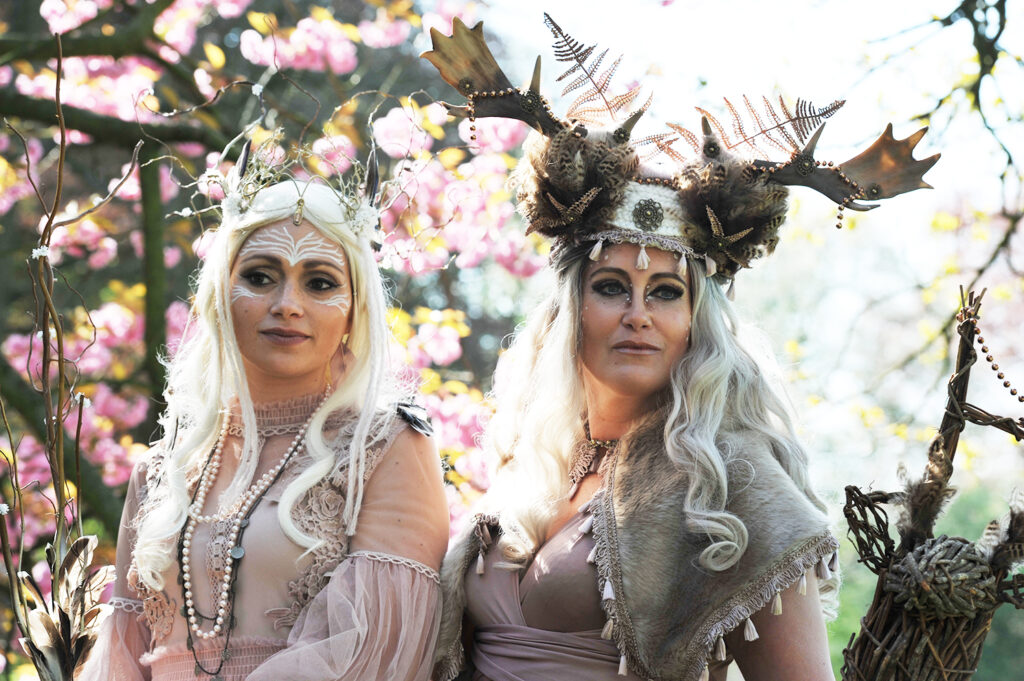
There are other ways to manipulate the shadows and high-lights in photo editing software.
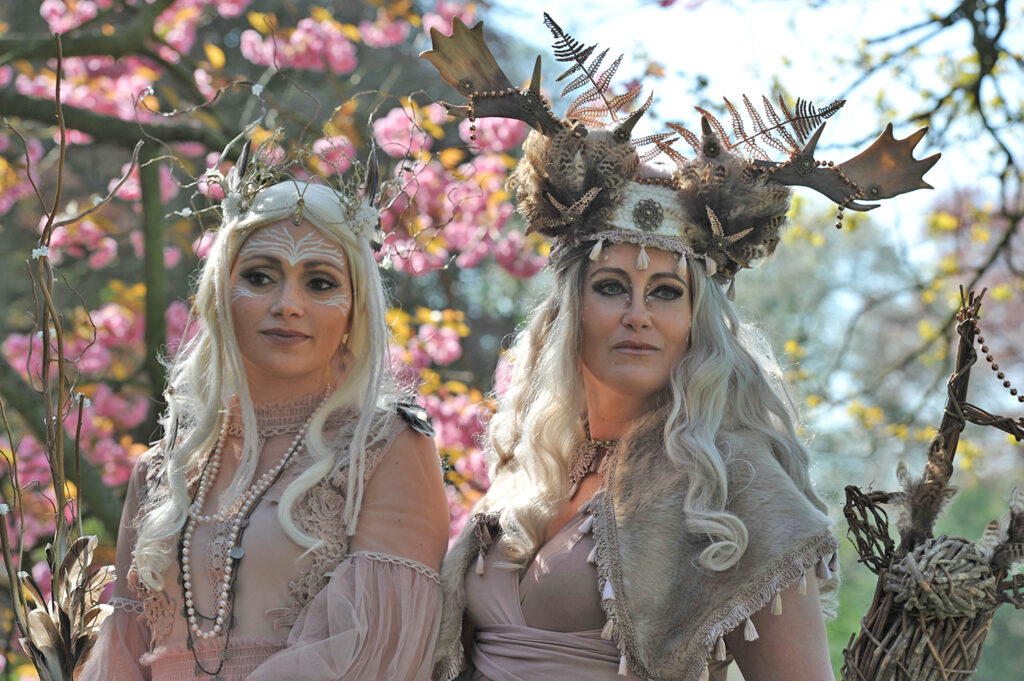
In the end these are tricks. Prevention is better than cure.
Contrast
To achieve good results in back-lit situations it matters to learn how to control the contrast. It might take some practice but will eventually yield the best results. Ensure more light will hit the subject from the front. The difference in the amount of light on the background and subject is reduced. This lowers the contrast. The build-in light meter no longer has a problem to choose the right exposure time.
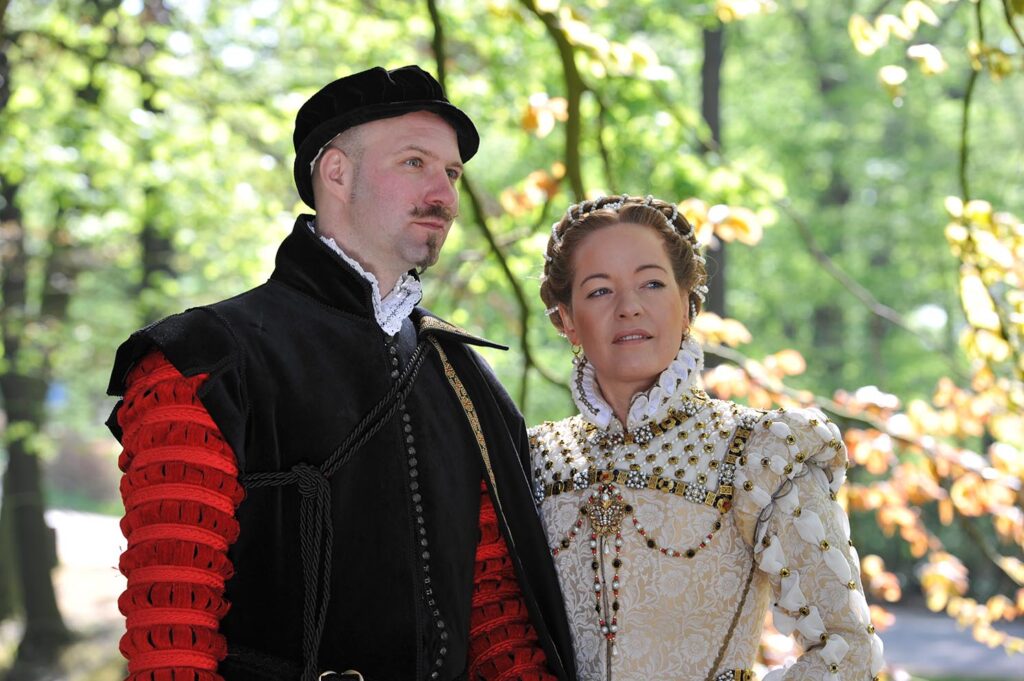
Historical costume maker: Angela Mombers
Fill Flash
A camera-mounted flash ensures more light hits the subject from the front. Make sure to use a flash diffusor to get soft fill light. Another option is to use “daylight” lamps. Professional photographers sometimes have complete lighting sets to help control the contrast even better.
Reflector
Reflectors have a similar purpose: control contrast. Indoors you can use a white polystyrene plate from your local DIY store. They are not suited for outdoor use. Because of their size they are not easy to transport. Outside they are easily caught by the wind, blown away and break up. Potentially causing environmental damage. You are better off with a portable folding reflector that are available in several shapes and sizes.
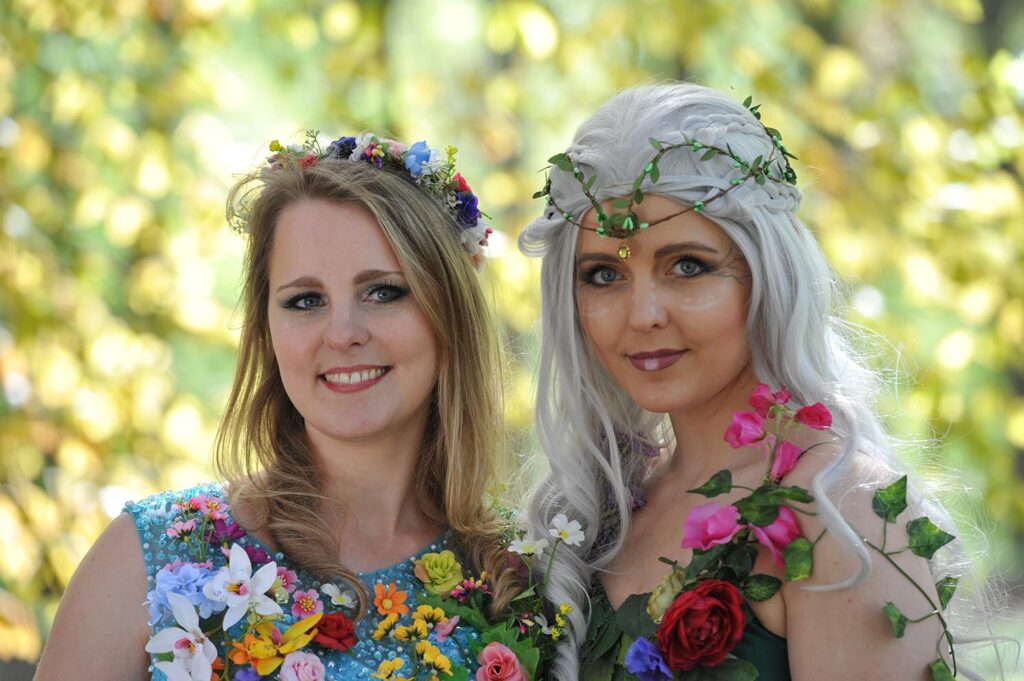
The advantage of a reflector is that the the amount of reflected light is directly proportional to the amount of backlight. There is some loss in the amount of reflected light. But the contrast difference is significantly reduced allowing the camera to properly expose the photograph.
Translucent
Flower petals, semi-transparent fabric, glas, plastic, etc. are translucent. Backlight will emphasize this.
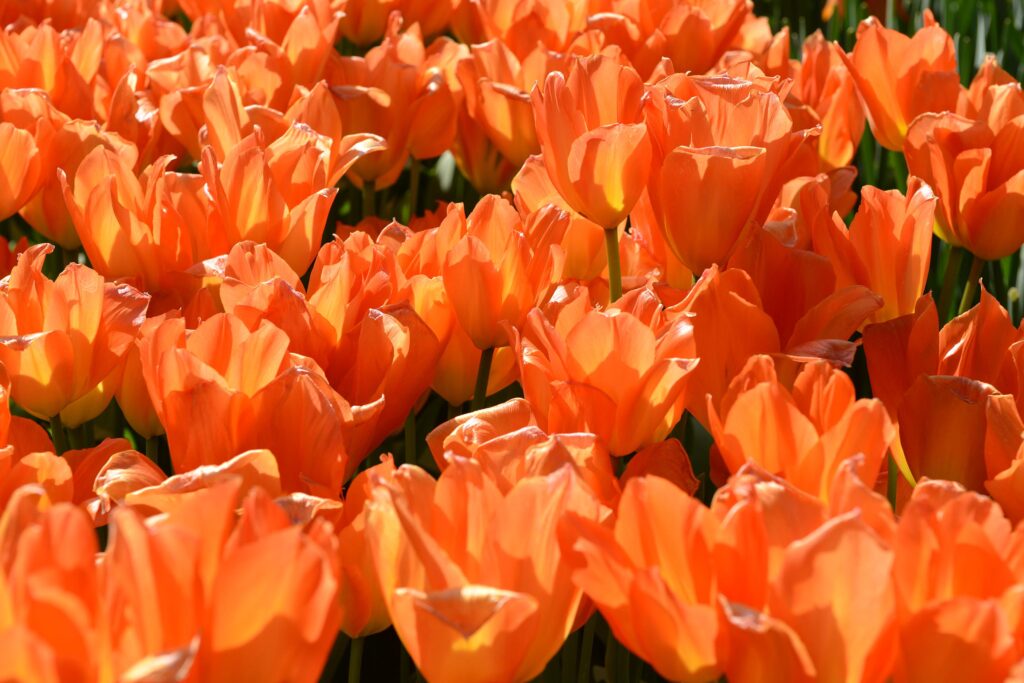
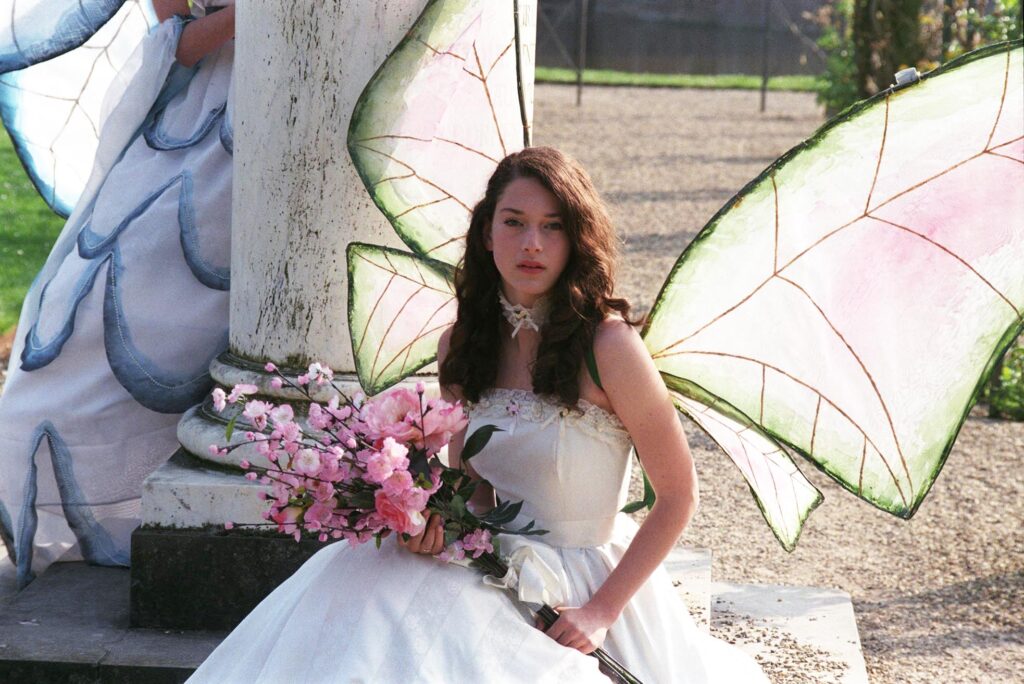
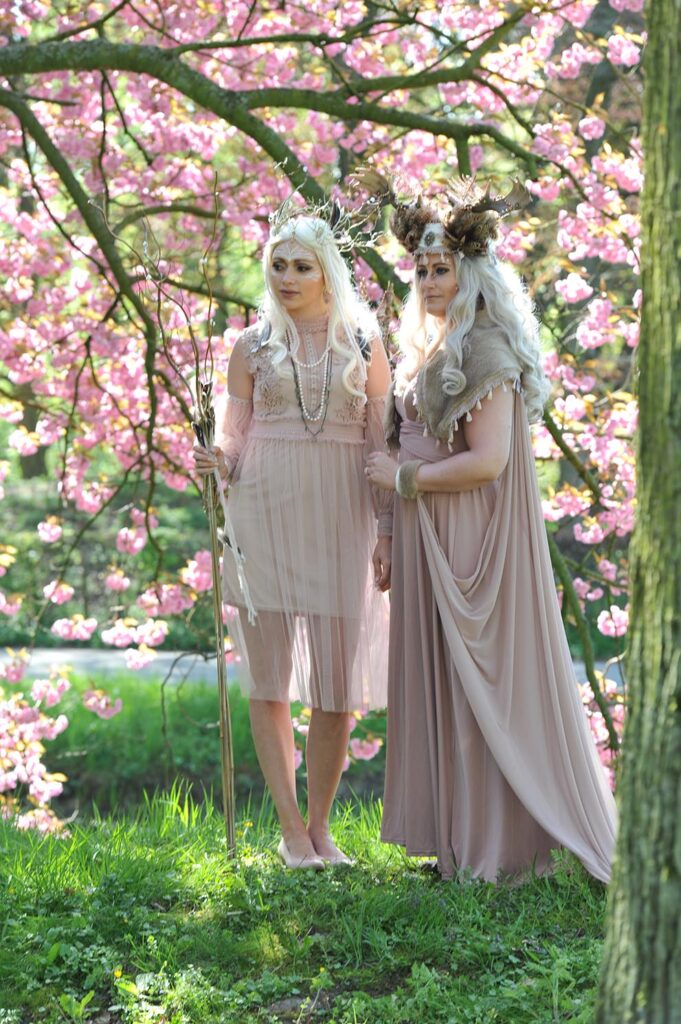
Depth
Backlight causes an edge of light on hair and shoulders. This edge of light helps to free the subject from the background and enhances the feeling of depth.
